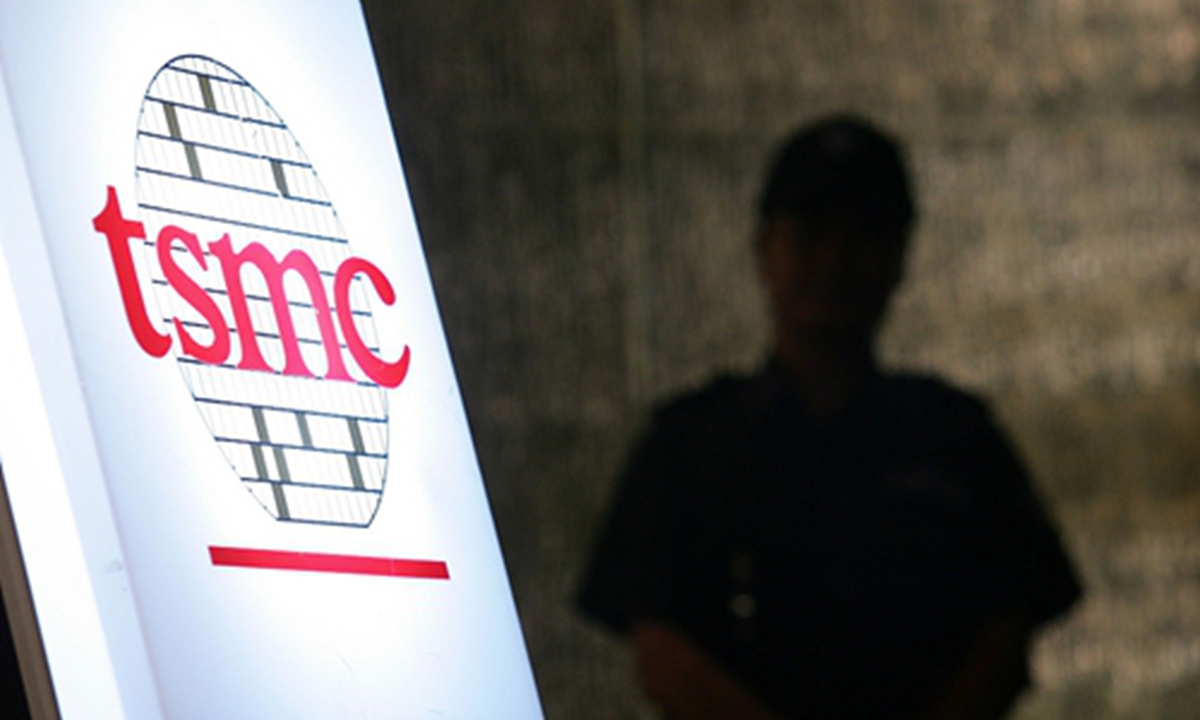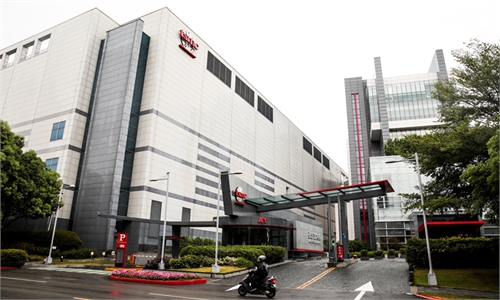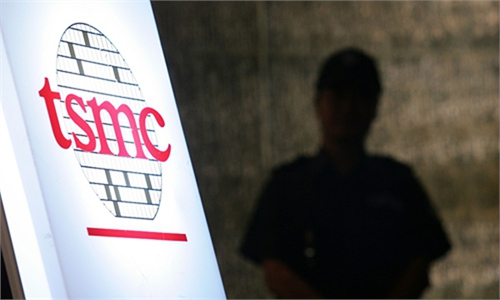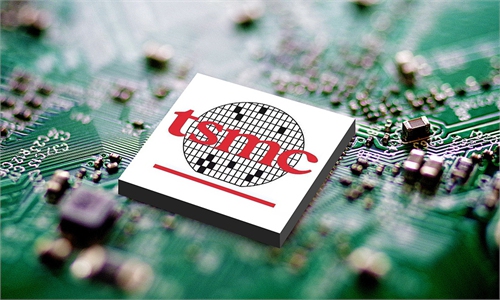GT Voice: US governor’s provocative trip to Taiwan region won’t attract chip firms

TSMC File photo
Doug Ducey, the governor of the US state of Arizona, arrived in China's Taiwan region on Tuesday for a "trade mission." Ducey is traveling with the head of the state's economic development agency, and the focus of their trip is to woo suppliers for the new $12 billion Taiwan Semiconductor Manufacturing Corp (TSMC) plant being built in the state, the Voice of America (VOA) reported.China has consistently and firmly opposed any form of official exchanges between any country and the island of Taiwan, which is an inalienable part of China.
Relevant US official should honor the three China-US joint communiqués and the commitments made by the US side, and avoid sending any wrong signal to the "Taiwan independence" separatist forces.
If Arizona officials try to establish official exchanges with the Democratic Progressive Party (DPP) authorities and set up the state's "first foreign trade office" in the island of Taiwan, treating it as a shortcut to strengthen cooperation with Taiwan's semiconductor industry and make Arizona an attractive "semiconductor central," these US politicians will be dead wrong. Such sneaky and provocative interactions between US officials and the DPP authorities can do nothing to help Arizona attract semiconductor-related investment, but will hinder normal business cooperation and disrupt the semiconductor supply chain.
In 2020, Arizona persuaded TSMC to agree to establish a facility in the state by providing favorable policies with an aim to bring more of Taiwan-based semiconductor suppliers to invest in the state, which is already home to a major Intel chip factory. However, the whole process does not seem to be smooth. So far, announced supplier investments reach only about $1 billion.
Making a semiconductor is one of the most complex manufacturing processes, requiring a complex and complete supply chain. If Arizona fails to establish a complete ecological chain for semiconductor industry eventually, TSMC's investment may become nothing more than a vanity project. Eventually, TSMC's plant may find it hard to survive because of the high import costs of components and parts.
It is no secret that the US economy faces major challenges to re-establish a complete semiconductor supply chain. Provocative exchanges with the DPP authorities won't help the US economy solve its practical problems, but instead will add serious fire to the current economic difficulties. If Arizona officials want to politicized semiconductor suppliers' investment and link it to the Taiwan question, which is the most sensitive issue at the very heart of China-US relations, this will seriously dampen semiconductor suppliers' willingness to invest in the US state.
As tensions escalated across the Taiwan Straits as a result of a succession of US officials' visit to the island, many semiconductor suppliers, especially small and medium-sized enterprises, are erring toward prudence when consider whether to invest in the US and trying to avoid getting involved in geopolitical tensions provoked by the US. In this sense, Ducey's visit to the island is a direct blow to Arizona's long-held ambition to become an attractive "semiconductor central."
Chinese Foreign Ministry spokesperson Zhao Lijian said at a press briefing on Wednesday that China urges relevant parties in the US to abide by the one-China principle and stop all forms of official contact with Taiwan. "China will take strong measures to resolutely defend national sovereignty and territorial integrity," Zhao warned.
No one should underestimate China's determination and ability to defend the nation's sovereignty and territorial integrity. Some US politicians are trying to play a dangerous game to drag semiconductor suppliers in Taiwan into tensions rising across the Taiwan Straits. But in the end, this will certainly cause self-inflicted damage to the US economy.



